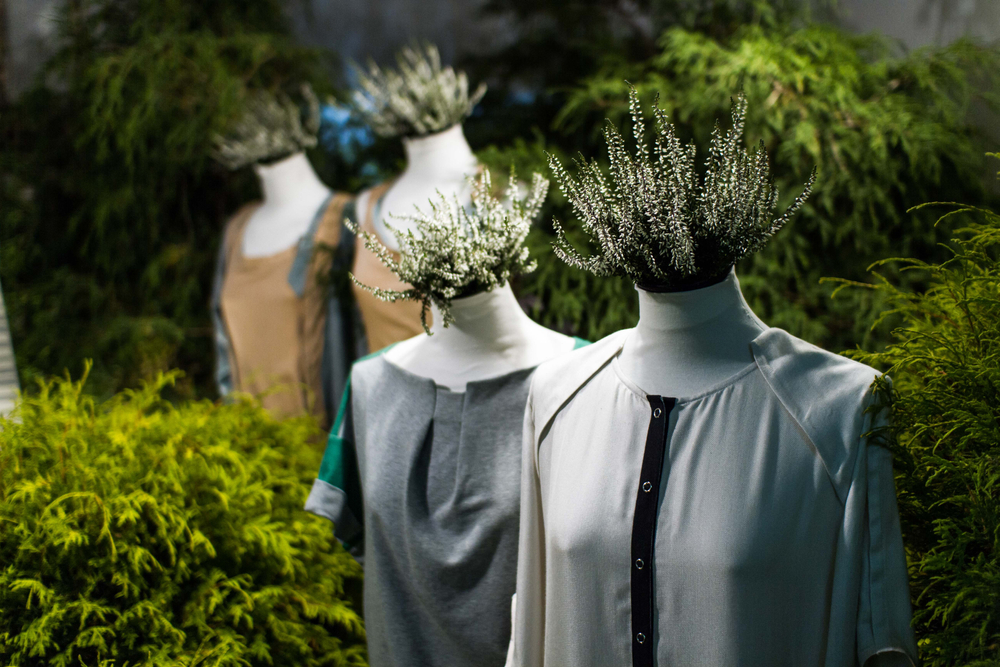How the pandemic has cast a spotlight on sustainability
Up until the start of the pandemic, there were many calls and concerns that the fashion industry needed to do more in its sustainability drive.
In fact, 2019 was hailed as the ‘year of the awakening’ in Mckinsey & Company’s State of Fashion Report, with customers demanding more transparency and social responsibility from fashion brands of all sizes.
It was the year that sustainability hit the mainstream, Drapers writes. Brands like John Lewis ditched 5p plastic bags along with click-and-collect packaging, while luxury brand Kering promised to become carbon neutral across its own company and throughout its supply chain by 2025.
Ushering in a new decade, 2020 was expected to serve as a ‘springboard’ for collaborative and urgent action. But disruption from Covid-19 on livelihoods, lives, the economy and the fashion industry saw sustainability slip down the priority list – despite becoming more important than ever before.
Creating a sector that’s mindful of people and planet
Kerry Bannigan, founder of the Conscious Fashion Campaign, acknowledged that Covid-19 had upended billions of people’s lives. At the same time, it has exposed the vulnerabilities of the world and “the fragility of the system that the fashion industry operates in.”
“The industry has seen unparalleled disruption to its operations,” Bannigan continued, “and faces a reset to create a resilient sector that is mindful of people and planet.”
Sustainability is back on the agenda
New sustainability campaigns were few and far between at the onset of the pandemic as businesses focused on survival. But this halt on progress was only temporary.
In May, German e-tailer Zalando teamed up with the Sustainable Apparel Collection (SAC) and its technology subsidiary Higg Co, to make sustainability assessments essential for brands selling goods on its platform.
Then, a few months later in August, Selfridges released its ambitious sustainability initiative ‘Project Earth’, which called on brands to adhere to strict sourcing guidelines and inspired the store to create its first own-brand resale model.
A number of small sustainable brands were set up during the pandemic – for instance, underwear brand Pantee and flipflop company FoamLife.
Chana Baram, from research company Mintel, agreed that sustainability efforts are starting to pick up. “Especially since Sir David Attenborough’s latest Netflix documentary, A Life on Our Planet, was released in October. Sustainability is becoming front of mind again for people.”
Aligning commercial, ethical and environment values
While the halt in trade under lockdown demonstrated just how vulnerable some business models were, it also offered a chance to align commercial, ethical and environmental values.
Back in the summer, H&M released a summer dress collection made using recycled fabrics within its Conscious range. It also laid out new plans to use only recycled and sustainably sourced materials by 2030.
Global sustainability manager at the retail chain, Pascal Brun, stressed how vital sustainability investment is during this global crisis: “We see our sustainability strategy as even more important and integral to our business than ever before [to be more resilient in times of crisis].
“The impact of the coronavirus pandemic has only accelerated our plans and pushed us further to focusing on our key goals. We believe strongly in investing in our future, whether by strengthening our expertise internally or investing in future innovations or collaborating with external industry partners in order to develop and progress further.”
Tackling issues within the supply chain

The pandemic also highlighted issues within some retail brands’ supply chains. Cancelled orders and closed factories saw manufacturing industries in overseas countries such as Bangladesh plunge into chaos.
Events such as these have encouraged more brands to look at how their workers are treated, as well as their overall clothing production process and its social and ethical impact.
Head of sustainability business for M&S, Carmel McQuaid, said that much of the company’s focus for its sustainability drive has been on its response to the pandemic.
McQuaid continued: “We’ve been doing all we can to support our longstanding clothing suppliers, such as continuing to offer vendor finance so suppliers can get early access to cash, paying for all shipped and made garments, conducting virtual visits in place of physical audits, and ensuring safeguarding measures are put in place to protect workers.”
The pandemic has also made consumers more conscious about where their clothes come from. In a Mintel report, 56% of people said sustainability is somewhat or very important when purchasing fashion items, while 38% began thinking about sustainable fashion after seeing coverage on factory workers and 35% from watching documentaries about the environment.
Next year to focus on ‘second lives’
Experts believe that there will be a strong push for resale, rental and recycled clothing next year, as well as a greater focus on transparency, biodiversity and carbon emissions.
Jodi Everding from contemporary clothing brand Filippa K reinforced the idea that transparency will be vital in 2021. “Consumers will continue to take brands to task to know where their clothes come from and how they are made so that they can justify spending with one brand over another.”

Everding added that brands will also begin to understand that they need to be involved in the process of getting their old clothes back into circulation – “not only because some governments are implementing EPL [environmental profit and loss] requirements but also because it’s a profitable business model.”
Good progress is being made
Despite the challenges this year has thrown at many industries, good progress has been made across many areas of sustainability.
It’s vital, moving forward, that brands maintain focus on sustainability and ensure it’s at the heart of everything they do. If you’re in need of assistance in this area, The Delta Group can work with you to help embed sustainable practices into your communications.
We’re also committed to improving our sustainability credentials. For instance, we’re transitioning to 100% green electricity, we’ve invested in new printing presses with improved carbon footprints, and are capable of switching single-use materials and plastics to more recyclable and sustainable alternatives. To find out more please email: hello@thedeltagroup.com.




